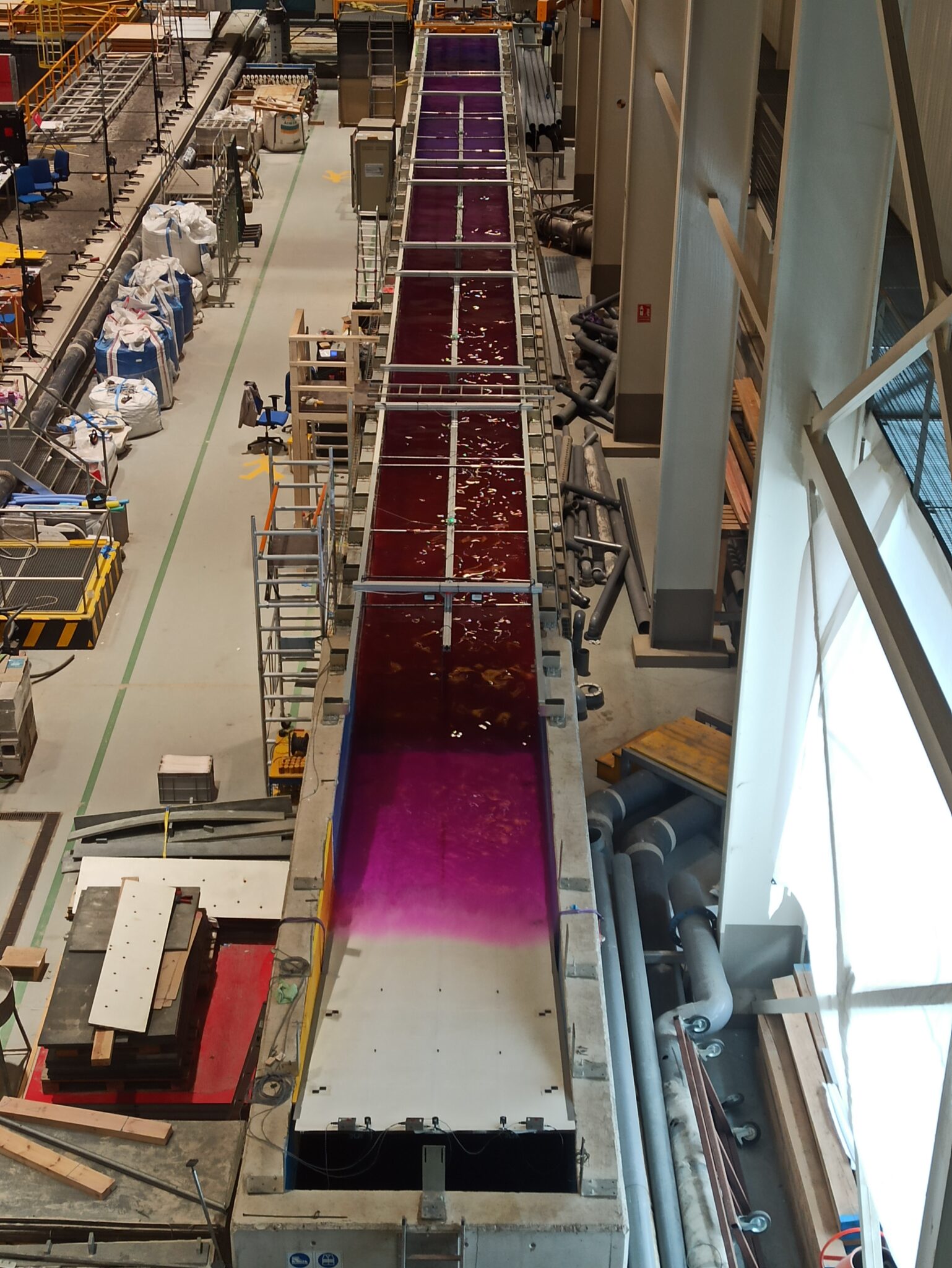SHEVEX project proposes the development of hybrid solutions for coastal adaptation to climate change from IHCantabria

Tests carried out at the Current-Wave-Tsunami Channel (COCOTSU), which is a Singular Scientific-Technical Facility (ICTS) of IHCantabria, to characterize the response of water solutions to extreme wave conditions
This project represents a crucial step towards adaptive and sustainable coastal solutions to meet the challenge of climate change; it proposes to advance the knowledge needed to include nature-based solutions (NBS) and hybrid solutions (HSS) in the portfolio of climate change adaptation solutions
Climate change has become one of the greatest challenges to society in the 21st century as it affects natural and human systems worldwide. Its impacts include sea level rise and extreme weather events, which pose significant threats to coastal areas and associated infrastructure. In this context, in order to address the vulnerability of coastal areas to climate change, the Environmental Hydraulics Institute of the University of Cantabria (IHCantabria) proposed the development of the project entitled “Hybrid Solutions for Coastal Protection from Extreme Weather Events” (SHEVEX), which emerged as an innovative response to address the vulnerability of coastal areas to climate change.
The purpose of this project is to increase scientific and technological knowledge in the field of hybrid solutions (HHSS) used as adaptation measures to climate change on the coast, leading to a design procedure that allows their implementation. These types of solutions contribute to exposure reduction, while providing a number of environmental and social co-benefits, for which the demand for HHS is increasing, especially in cases where nature-based solutions (NBS) alone do not provide the targeted risk reduction.
Historically, conventional structures have been the preferred option for protecting coastal areas; but, the need for more sustainable and resilient approaches has led to the rise of SbNs. “These solutions, which focus on the conservation and restoration of coastal ecosystems, offer a range of ecosystem services and present environmental and social benefits associated with the different ecosystem services provided by the solution,” reports María Maza Fernández, who is the principal investigator (PI) of the SHEVEX project and member of the Climate Risk, Adaptation and Resilience Group of IHCantabria.
Incorporating HHSS into the portfolio of solutions for climate change adaptation requires integrating knowledge from different disciplines to address a set of knowledge gaps that have been identified and on which we intend to make progress. Therefore, from a multidisciplinary perspective, the SHEVEX project proposes to develop a HSS design procedure that allows a feasibility analysis and design of this type of solutions, based on existing maritime works regulations, which are currently used as a technical framework for design and implementation.
Addressing limitations with hybrid solutions (SSHH)
Despite their advantages, SbNs face limitations in high-risk areas or areas with insufficient space. This is where SSHHs, which combine coastal ecosystems with artificial structures, come into play. Therefore, the overall objective of the SHEVEX project is to develop a design procedure for HHSS, as a climate change adaptation measure, focused on reducing impacts from extreme weather events. A comprehensive strategy will be proposed for implementation and validation.
Specific objectives include: characterizing extreme weather events and parameterizing HHSS; developing a design tool for HHSS under wave conditions and extreme events; integrating HHSS into existing marine works regulations; and applying the advances in a case study in the Mediterranean.
In addition to María Maza, the other PI of the project is Javier López Lara, who is responsible for the Climate Risk, Adaptation and Resilience Group at IHCantabria. Other members of the team are the following researchers: Mariana Roldan Upegui, Pablo Ruiz Ceballos, David Lucio Fernández, Luis Fernando López-Arias and Alberto Vicente Fernández Pérez.
More information about the SHEVEX project, through the following link: https://shevex.ihcantabria.com



